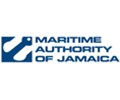

On this World Maritime Day, organised by the International Maritime Organisation (IMO) under the theme: “Seafarers: at the core of shipping’s future,” I laud the professionalism, commitment and resilience of seafarers, male and female – both Jamaicans and other nationalities.
Indeed the pandemic has placed additional demands on seafarers and we owe thanks to these dedicated men and women who have spent long months at sea and away from their families to ensure world trade continues to flow, particularly during this Covid-19 pandemic. Even at this stage of technological advancements, ships still have to be operated by human beings – seafarers whose dedication, commitment and professionalism help to keep us supplied with our human needs.
The Government of Jamaica has demonstrated its commitment to the welfare of seafarers by passing an amendment to the Shipping Act in 2020 to incorporate the Maritime Labour Convention 2006 (MLC), known as the “Bill of Rights for Seafarers”. The legislation also extended the protections provided to seafarers involved in the operation of ships to members of the crew who work in the hospitality division.
Jamaica is also proud to say that we were among the first set of IMO Member States to recognize the seafarers as key workers, who we have designated in law as “essential workers “.
Our Port State Control Officers at the Maritime Authority of Jamaica go on board foreign flagged ships that call at our ports and’ in addition to checking for compliance with the safety, security and environmental international instruments, they ensure that the provisions of the MLC are being strictly observed on board those vessels.

The Hon Robert Montague, CD, MP, Jamaica’s Minister of Transport and Mining
Jamaica has also worked with the Caribbean Maritime University to provide appropriate, globally accepted IMO training standards and qualifications to enable our seafaring workforce to perform successfully in their careers at sea. Many of our seafarers serve with reputable shipping lines on all types of ships from LNG tankers to containers ships, bulk carriers and now even in cruise ships.
The Government, through the Maritime Authority of Jamaica, continues to work proactively with the IMO and the ILO rules, to put in place the necessary regulations and mechanisms to operate a safe and successful shipping industry, not only to preserve and protect our fragile marine environment but also to provide for the welfare and safety of our seafarers.
The Government of Jamaica salutes our hard working seafarers on World Maritime Day 2021. You have made us proud.
World Maritime Day Message
from Rear Admiral (Ret’d) Peter Brady
Director General, Maritime Authority of Jamaica
The World Maritime Day theme for 2021, ‘Seafarers: at the core of shipping’s future’ as described by the International Maritime Organization ‘seeks to increase the visibility of seafarers by drawing attention to the invaluable role they play now, and will continue to play in the future. Seafaring – a career that is over 5,000 years old, is unbelievably a novelty in some minds. From the early Polynesian seafarers and the first full circumnavigations of the globe, to explorers picking their way through the coral reefs of the West Indies, seafaring has existed.
The men and women who have undertaken this job throughout the ages have often gone unrecognized and unnoticed, while the other ‘so called’ traditional careers have dominated the spotlight and have further consumed the minds of young aspiring professionals as the jobs of choice. However, the brave men and women in this very old and noble profession have continuously overpowered the negative effects of being at sea, such as frustration, loneliness, fatigue, homesickness and severe weather systems, to ensure that the essential items and commodities on which our lives depend, arrive safely at our homes.
Behind these scenes are unknown stories of seafarers who toil hard round-the-clock so that their ships, carrying various cargoes and consignments, are delivered safely and on-time, even in some of the remotest corners of the world, and are thus the backbone of the global supply chain for the economies which rely on Shipping and Logistics.
If it had not been for them, global trade would come to a standstill, people would be devoid of their necessities and some nations would find it extremely difficult to even survive. Unfortunately, it took the very devasting Covid-19 Pandemic to remind us of the tremendous work that this group of people continue to execute and how essential they are to the world. Ships just kept sailing across the oceans almost uninterruptedly in the past 18 months.

Rear Admiral (Ret’d) Peter Brady, Director General, Maritime Authority of Jamaica
The pandemic further highlighted the great challenges that are faced by these individuals and the importance for countries to embark on initiatives to support seafarers and seafaring. I am very proud to say that the Government of Jamaica, was one of the first countries in the Caribbean to reopen its borders to enable controlled entry and transit of crew, and, has designated seafarers as “essential workers” under 2020 Disaster Risk Management (Emergency Measures) Order.
Supporters /advocates are quick to point out the excellent career choice seafaring is and the grand opportunities it provides while seafarers are at sea, as well as when they leave the sea how well prepared and adjusted they are for life ashore. Prominent jobs, inclusive but not limited to ship manning and management, offshore, ports, shipping, dredging, shipyards, designing and many others, are often spoken about – and all these things are true.
Conversely, some believe that this profession is just a form of adventure which gives free travel at no cost and a large salary to seafarers. However, while salaries are not indecent, this is far from reality. Seafarers at times work under extremely difficult circumstances and were it not for their dedication and perseverance, which keeps them going, the functioning of the modern world would not be possible.
According to the International Chamber of Shipping (ICS), seaborne trade continues to grow and expand, especially through the increased efficiency of shipping through technological advancement. Thus shipping, which is already responsible for 90% of world trade, is projected for continued growth. The world fleet is registered in over 150 nations and manned by over a million seafarers, spanning almost every nationality. The ICS further stated that the global demand for officers has increased by around 24.1 per cent with a shortage of approximately 16,500 before the pandemic hit.
With that said, the outlook indicates that there is a need for more trained seafarers and that this need will continue to expand. It, therefore, means that the industry and relevant stakeholders should make concerted efforts and take measures to address key issues, not only through the promotion of careers at sea, but by bringing awareness to the importance of the profession for the development of a ‘Maritime Conscience’ in the younger generation – that is, the knowledge, interest, capability and comprehension of the sea and its potential impact on political, economic and social development – so that young Jamaicans can accept seafaring as a viable career path. Further, there must be a conscious drive to enhance maritime education and training, as we purpose to produce seafarers to serve the global industry in response to the projected global shortage.
Finally, I cannot help but reiterate the importance of the maritime industry to any economy with, or even without, a maritime border, let alone an island such as Jamaica. Therefore, on World Maritime Day, I take this opportunity to congratulate the men and women who are the backbone of this industry, and further encourage partners and stakeholders to continue to support these individuals.
In Jamaica we will mark the day by hosting a webinar titled “Seafarers’ Welfare: Importance of Seafarers’ contribution to development of the maritime Industry”and we will be highlighting the importance of World Maritime Day in the media.
Source: Maritime Authority of Jamaica